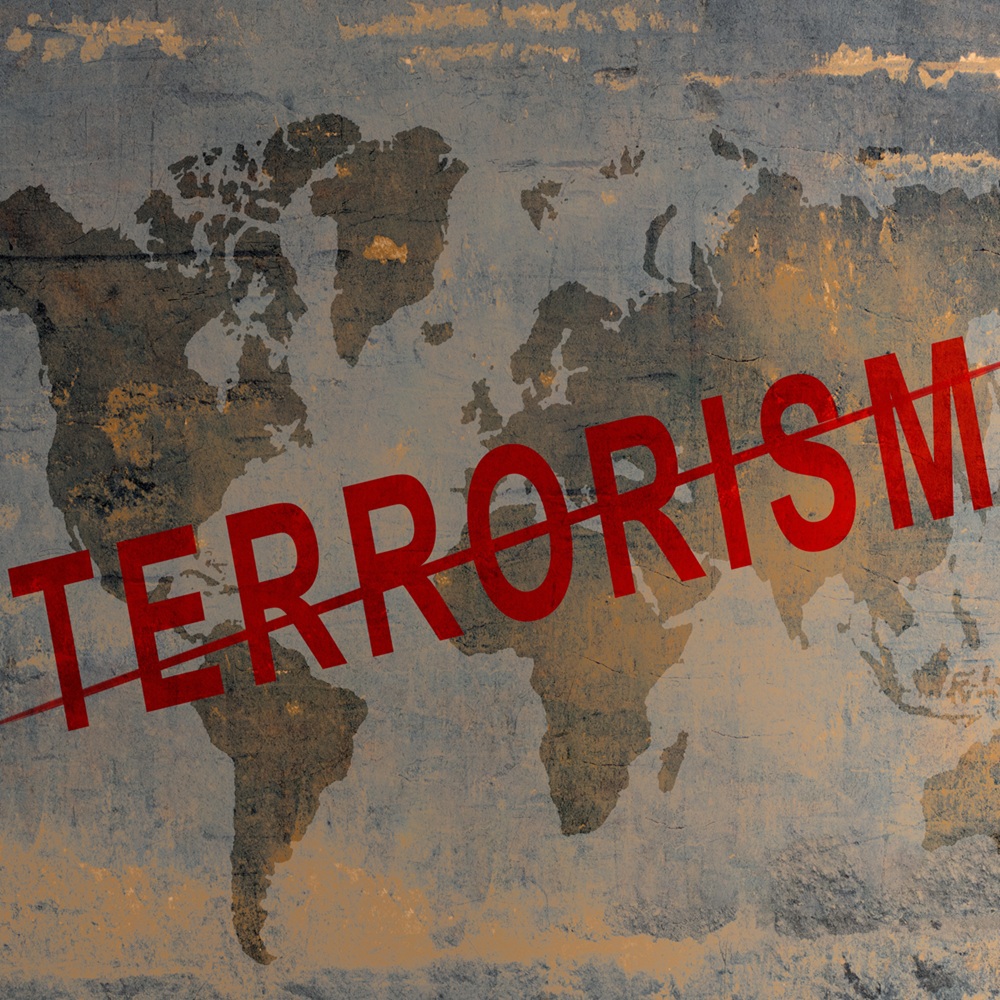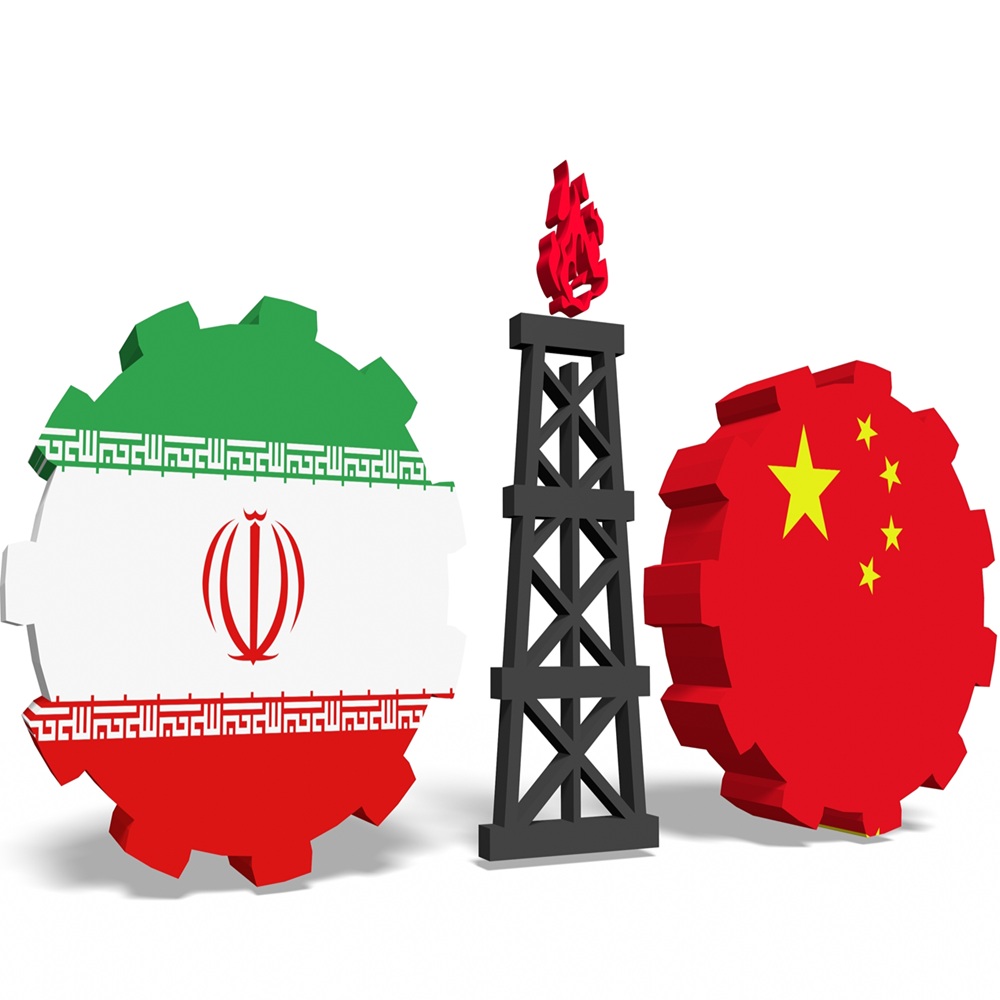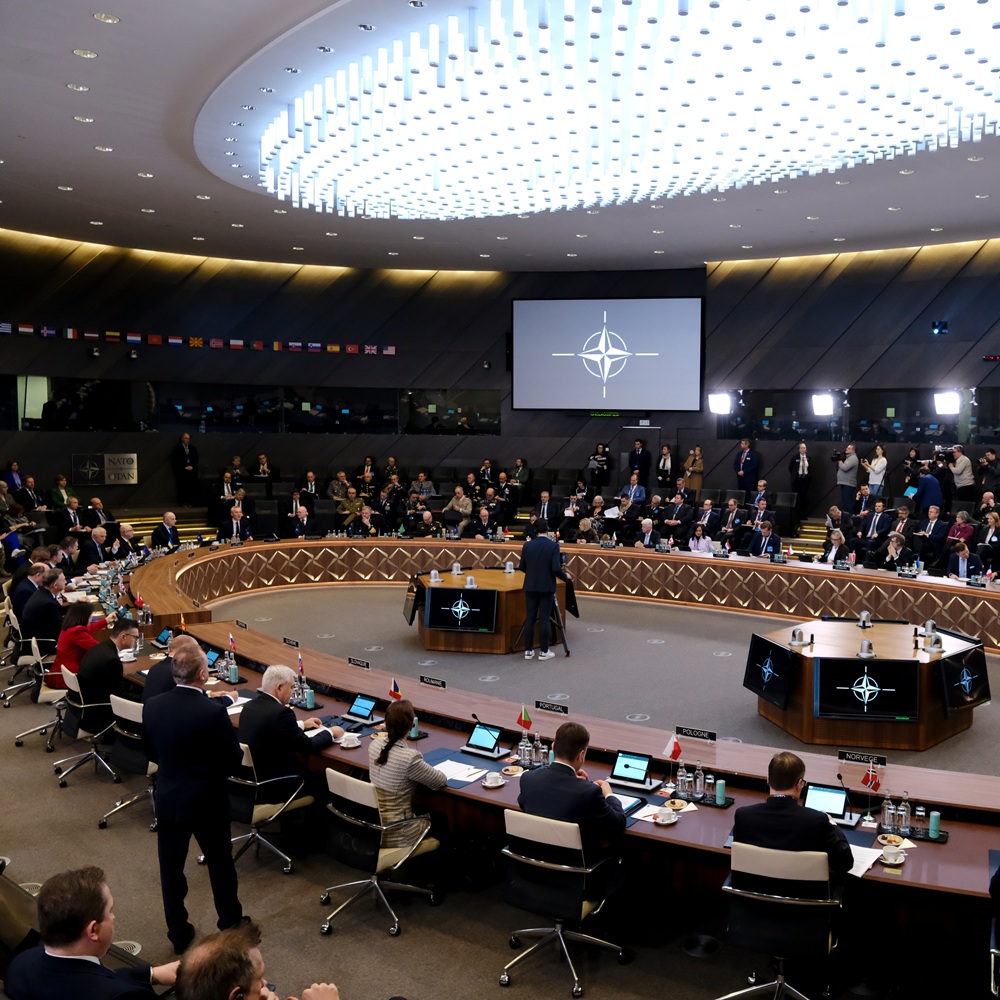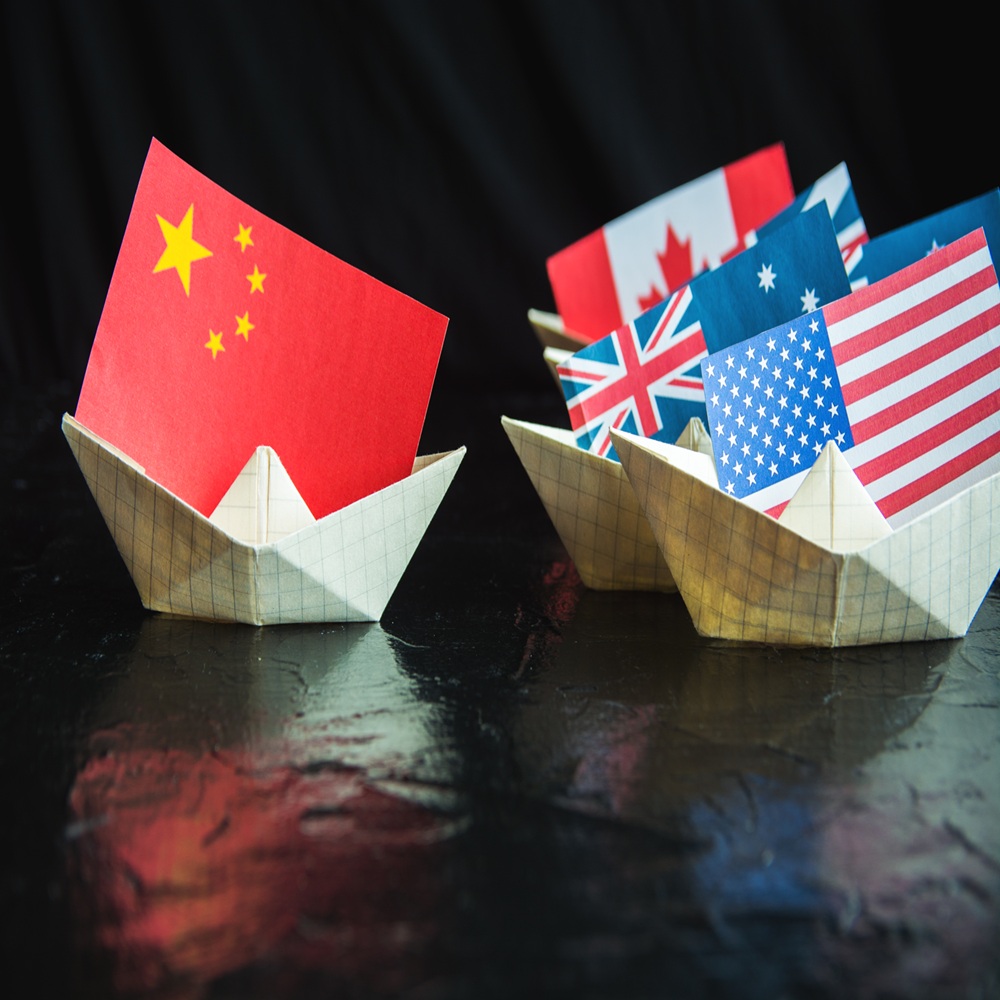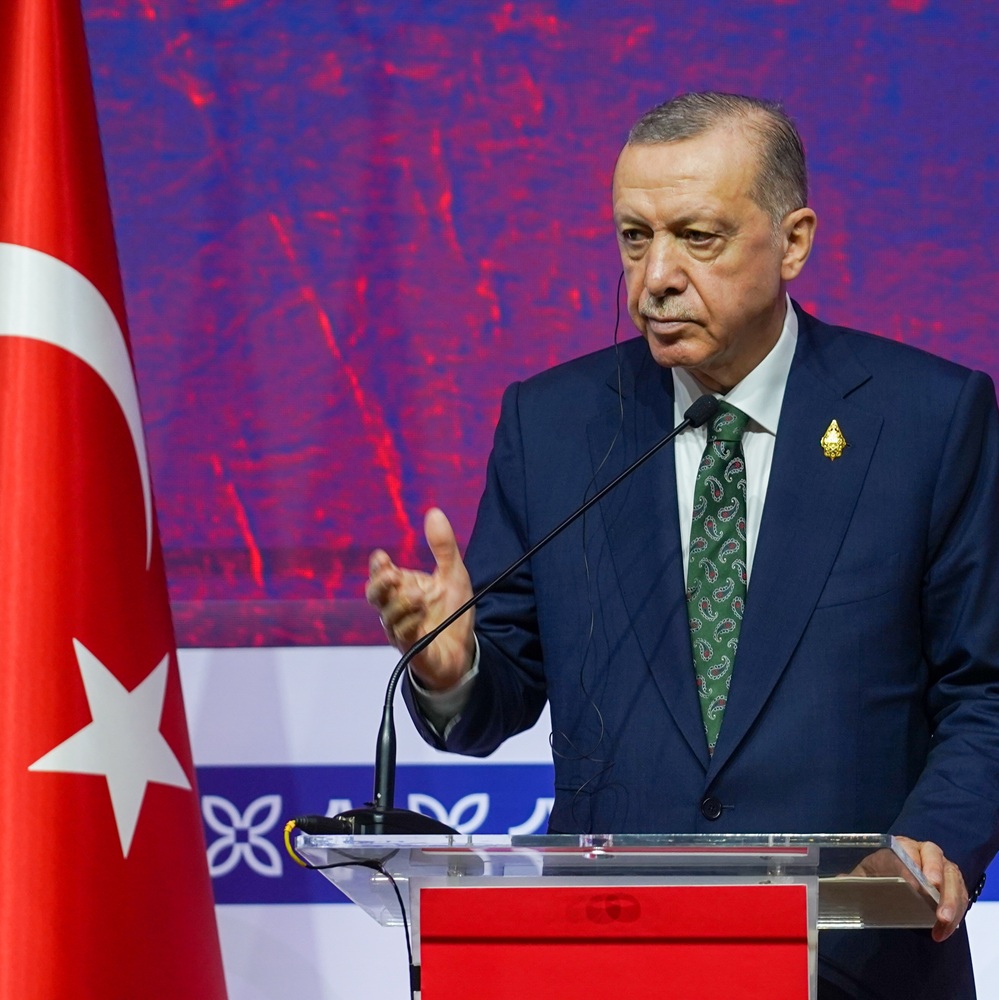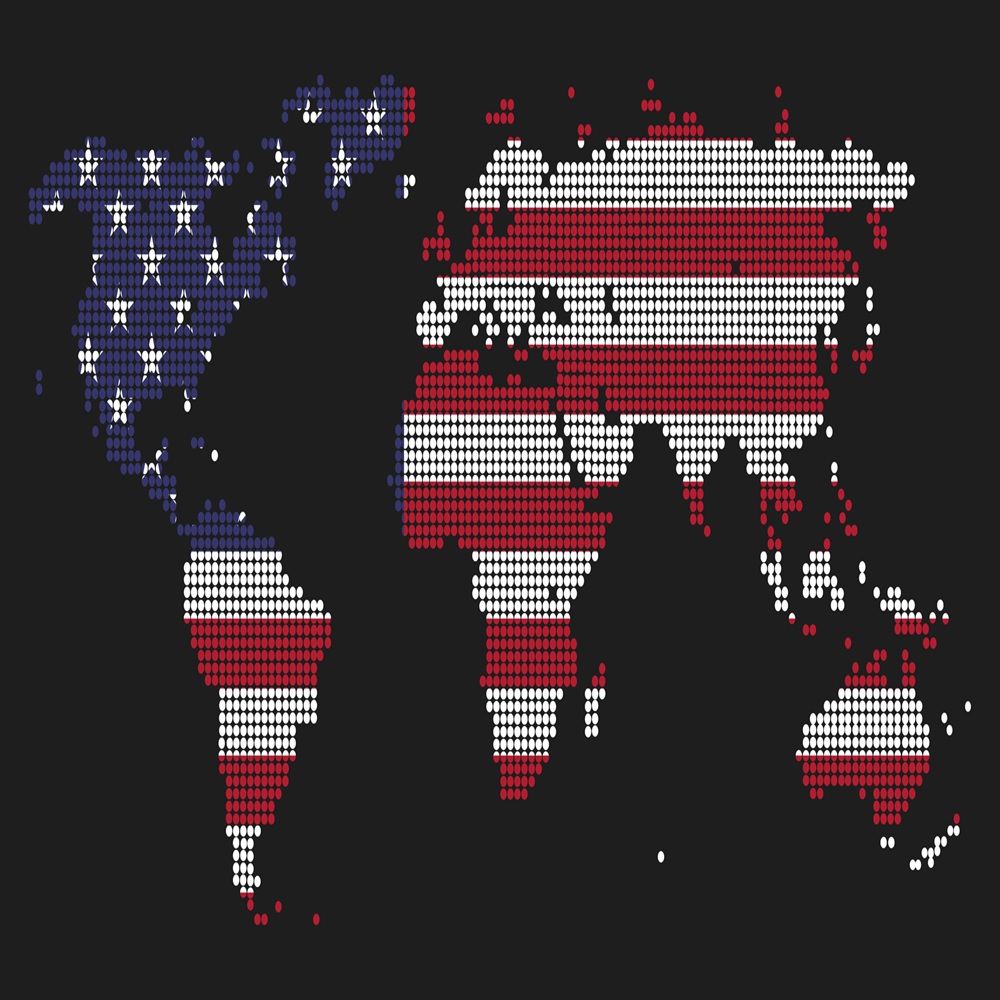Causes of women involement in terrorism
by Eraj Farooqui
AbstractThis paper explores the complex factors that contribute to women's participation in terrorism, a subject that has attracted more scholarly interest, particularly in the wake of 9/11. The discipline is nonetheless politicised and divided despite a great deal of study, which is frequently made worse by a lack of primary data. Women, who are typically thought of as quiet and non-violent, have taken on important roles in terrorist groups, especially during the 1990s, where they have participated in high-profile attacks and leadership roles. The study identifies the main factors: political, religious, personal, and gender equality—that motivate women's participation. Examples show how different organisations differ in that some encourage women to participate actively, while others limit their positions. The study also examines how terrorism has changed over time, with a particular emphasis on its gendered aspects, and assesses how contemporary organisations such as the Islamic State have reshaped the roles of women in terrorist networks. Finally, by illuminating the ideological, cultural, and societal factors that lead to women's radicalisation and involvement, this research offers an in-depth examination of the relationship between gender and terrorism.Keywords: Terrorism , Women , Political , Religion , Personal , Gender-equality Introduction The reasons behind female terrorism have been extensively studied and debated by numerous academics. Even though there is a wealth of study, a substantial portion of it is contradictory or incomplete. Frequently, the highly politicised word of terrorism has led to contradictory claims in the research. To understand why individuals resort to women terrorism, scholars highlight political, religious, social, and personal causes. In our culture, women were seen as housewives and peaceful members of society, and terrorist groups were controlled by men. Research on women and terrorism can be done on a variety of subjects; however, this paper will mostly focus on the causes of why women participate in terrorism. After 9/11 the academic research on scholarly papers on terrorism have increased by 300% since 9/11.[1] The connection between terrorism and gender is often overlooked due to governments' reluctance to reveal the primary causes and the reluctance to provide reliable data. Researchers often avoid original sources for security reasons. A 2009 review by Karen Jacques and Paul J. Taylor found a reluctance to describe events, excessive narrative analysis, and reliance on secondary sources. [2] The word "terror" comes from the Latin verb "terrere" which means to frighten. It was originally used by the Romans in 105 B.C. to characterise the terror that engulfed Rome during the attack by the Cibri tribe. During the French Revolution’s Reign of Terror, Maximilien Robespierre incited fear among the people.[3]The word "terrorist" was used by Edmund Burkey in the Regicide Peace letter. With the end of Reign of Terror, the word ‘terrorism’ gained popularity.[4] Terrorism, a deliberate use of force or intimidation, is a significant issue in the 21st century, often driven by ideological, religious, or political factors. However, the term "terrorism" has no widely recognised definition. There are four distinct stages of modern terrorism. The first wave of terrorism began in Russia and spread to Western Europe and the United States, using revolutionary and anarchist beliefs.[5] The final wave is founded on religious beliefs that the world is currently dealing with. This wave started in 1979 when Iran underwent an Islamic revolution. Because of gender norms, terrorists are frequently perceived as masculine attackers. Women are perceived as powerless, passive, and victims during times of conflict, but it is important to remember that if they participate in terrorism, they may pose a greater threat than men.[6]And since 1990, women have gained prominence in terrorist organisations, assuming leadership positions and taking part in more brutal assaults. More media attention is given to female attackers, and people are more curious about the motivations behind their actions. Additionally, terrorist organisations are recruiting more women as a result of this. Although they have historically been involved in terrorist organisations, women's numbers have been small. As an example, the number of female suicide attackers has surged from eight in the 1980s to well over 100 since 2000, indicating a growth in the involvement of women in terrorist actions.[7] On the other hand as per Bloom’s report over 257 suicide attacks were carried out by female bombers between 1985 and 2010, accounting for 25% of all terrorist incidents. Since 2002, the proportion of female bombers in several nations has surpassed 50%.[8]The first known incidence of female political violence happened in 1878, when Zasulich shot Fedor Trepov, the governor of Saint Petersburg. David Rapoport identified this as one of the four waves of modern terrorism.[9] Weinberg and Eubank claim that women have primarily assumed leadership positions in left-wing revolutionary bands while being assigned to inferior positions in right-wing organisations. They mostly perform supporting and auxiliary functions for numerous religious institutions. [10]Gender, Palestinian Women, and Terrorism: Women's Liberation or Oppression? was written by Anat Berko and Edna Erez. stated that during his questioning, he discovered that many Palestinian men did not approve of women participating in suicide bombings because they saw them as inferior to men.[11] After doing study with a local terrorist organisation, Jacques and Taylor chose 30 male and female suicide bombers. He finished by studying the fact that males prefer to join terrorist organisations for religious and nationalistic reasons, but female suicide terrorists are motivated by personal ones. Mia Bloom’s book the Bombshell: Women and Terrorism examines the motivations of women who participate in terrorism,[12] with an emphasis on relationships, respect, revenge, and redemption. According to Vetter and Perlstein, one of the reasons why women join terrorist organisations is because of gender equality. However, Jacques and Taylor disagree with this notion.[13]The main reason women join the LTTE is to fight for gender equality; they participate in every aspect of the group and do so to avoid being discriminated against and repressed by the male-dominated society. The following studies will provide an academic perspective on the causes of women's involvement in terrorism. The main focus will be on four causes: political, religious, personal, and gender equality, as well as a list of important terror occurrences conducted by female terrorists as a result of some key ideological beliefs. Religious Cause: Religious convictions have been the foundation of many terrorist organisations throughout history. The Crusaders can be categorised as a terrorist group. Although the Crusaders' main objective was to propagate Christianity, they also committed heinous acts of terrorism. The Iranian Revolution of 1979 was the fourth wave of contemporary terrorism, and David Rapport claims that it was the first instance of religious terrorism in the modern era. Religious terrorism's core principle is the promotion of violence in the name of furthering religious beliefs. For example, Al-Qaeda and ISIS promote an Islamic caliphate globally.[14] However, attempting to do so by using cruel and aggressive methods. Islam and terrorism have become more associated since 9/11, as terrorist organisations have posed a serious threat to Western ideologies and societal influences.[15] Gonzalez-Perez notes that suicide bombers frequently use the idea of martyrdom and benefits in the afterlife to lure people into justifying their acts.[16] Women are also part of religious terrorist organisations but there are two argument over women involvement in jihadi group. As explaind by Muhammad Khayr Haykal in his book Al-Jihad wa al-qital fi al-siyasah al-shar'iyyah. 1. Women were seen as having a responsibility in raising money for Jihadis, caring for children, and providing medical treatment.[17] 2. The Islamic state should set up training facilities for women to learn how to wield weapons and combat techniques, according to Islamic legal expert Muhammad Khayr Haykal. According to him, all Muslims should be held accountable for jihad if it turns into fard ‘ayn, and women must be prepared for this possibility in order to perform their duty. This strategy permits the practice of female jihadism in martyrdom missions and on the battlefield.[18] Role of women in Al-Qaeda According to Robet Pape in his book Dying to Win: The Strategic Logic of Suicide Terrorism.[19]Highlights that male terrorists affiliated with Al-Qaeda oppose women's participation in terrorism. However the Tamil Tigers used twenty-three female attackers, the Palestinians used six, the Lebanese used six, the Chechens used fourteen, and the PKK used ten. Consequently, he concluded that Islamic fundamentalists oppose female fighters.[20] However, after the rise of the Islamic state, which encourages women to join their organisation and accept arms, the Pape argument is no longer regarded as legitimate. For example, some 200 women joined the Islamic State in Syria in 2014 after migrating from Western nations. Additionally, they more than doubled their numbers in 2015, reaching over 550 women.[21] This suggests that the Islamic State may assign women a direct role, such as suicide bombing, in a way that is different from that of many other jihadist organisations, such as the Taliban and Al Qaeda. In Al-Qaeda the women played a secondary role for.e.g: Al Qaeda also benefited strategically from the assistance that women provided. For instance, the female terrorists of Al Qaeda were strongly using the internet to try to convince men to join the worldwide Jihad. Some males are inclined to join these groups because they feel ashamed of their masculinity as a result of these communication strategies.[22]Women's roles in jihadist organisations are valued in that they bear children and raise them to be potential recruits for terrorist organisations. Usama Bin Laden thanked women by saying: "You have inspired and encouraged [men] to join jihad, and you have raised all the men who fought in Palestine, Lebanon, Afghanistan, and Chechnya, and you are the ones who produced the squadron of heroic men who carried out the raids in New York and Washington."[23] On the other hand Ayman al-Zawahiri's wife, Umayma al-Zawahiri, also urged her "Muslim sisters" to raise their kids on the love of jihad in God's way and "to induce their brothers, husbands, and sons to protect Muslims' lands and properties. To support (male) jihadists with prayers and financial support. [24] Al Khansa'a was one of the authors of the online magazine that inspired Muslim sisters with her articles; while she did not advocate for women to fight in combat, she did counsel them to stay in shape and exercise so they would be prepared for jihad.[25] Al-Qaeda Iraq's founder and Al-Qaeda member Abu Musab al Zarqawi urged Iraqi women to join the military. In Talafa, Iraq, a US military recruiting centre was the target of the first female suicide bomber. According to the announcement made by al Qaeda in Iraq on its website, "A blessed sister carried out a brave strike defending her beliefs. May God include our sister among the group of martyrs.’’[26]According to Mia Bloom the attack was carried out under the alias "ghost group" because it was still forbidden for Al Qaeda Central to collaborate with women on suicide bombings.[27] The identities of male suicide bombers are mentioned by AQI members, but the names of female suicide bombers are never mentioned. As a result, it is challenging to determine the purpose or driving force for their membership in terrorist organisations. Despite the lack of data regarding female suicide bombers, certain enquiries and interviews provide us with comparable reasons why they chose to join AQI as female terrorists. After losing a loved one, women join terrorist organisations in order to kill the offender and get revenge for the deaths of their husbands and brothers. Furthermore, AQI members urged young females to die as martyrs, claiming that they would immediately enter heaven and be the prophet Muhammad's neighbours.[28] Al-Qaeda is therefore mostly a male organisation that discourages women from engaging in violent activities. Women's roles are limited to becoming teachers, fund-raisers, social media advocates, and moms of potential jihadists. Role of women in Islamic State(IS) Islamic State was founded in 1999. The Islamic State had the greatest number of foreign terrorist fighters in history, making it a unique terrorist organisation. About 41,490 foreign nationals from 8 nations joined the Islamic State with the goal of restoring the caliphate. Of the foreign terrorist fighters, about 4761 (13%) were female. Following Eastern Europe (44%), Western Europe (42%), the Americas, Australia, and New Zealand (36%), and other regions, Eastern Asia had the greatest percentage (70%) of women connected with the Islamic State.[29] The biggest motivation for joining an Islamic terrorist organisation is religion. Women typically played a supporting role in Islamic terrorist organisations prior to the rise of the Islamic State. However, the role of women in these organisations has grown stronger after the fall of Al-Qaeda and the rise of Islamic State in the Middle East. Muriel Dagauque, a Muslim woman who converted to Islam and was married to a Muslim man, was one of the Islamic State suicide bombers. She moved to Iraq with her spouse from Europe in order to become a martyr, and on November 9, 2005, she bombed herself.[30] Many jihadist suicide bombers are comforted by the assurance that they will be sitting next to God (Allah), experiencing only joy and no agony, before the first drop of their blood ever hits the earth.[31]Women joined the Islamic State mostly for religious reasons. Umm Layth, also known as Aqsa Mahmood, was a 21 year old Scottish university student who travelled to Syria to take part in Islamic State terrorist activities. Mahmood expressed her opinions on jihad with the following sentences.: "If not you, then your grandkids or their grandchildren. But do not worry, our cubs will eventually shed your blood. This Islamic dominion will become well-known and dreaded all over the world. Choose a side; this is a fight against Islam. You may either support them or support us.''[32] Role of women Chechnya Terrorism: Islam is the predominant religion in Chechnya, and Wahhabist terror ideology is linked to Chechen terrorism, particularly suicide terrorism.[33]The Wahhabi sect appears to have spread to the Chechen territories through other terror cells in the Middle East, such as al Qaeda.[34] This ideology which glorifies martyrdom and promotes jihad in order to establish a worldwide Muslim caliphate is a rationale for carrying out acts of retaliation and acting on behalf of a national separatist movement.[35] Chechen women, due to their Islamic influence, often wear black and traditional Muslim clothing, such as a head scarf or jilbab, which allows them to conceal weapons and bombs, as seen in the Dulbrov theatre incident.[36] Religion is one factor that contributes to women joining terrorist organisations, but it is not the only one; other factors also play a role. Political Cause According to Gus Martin, terrorism can occur under a variety of circumstances when there is political repression. First, the group is resentful of the injustices they perceive in society. The group also believes that their social dissent is insignificant. Last but not least, the group believes that there are problems with the system that can be fixed, which leads them to confront the conflict.[37] Despite the widespread belief that women do not participate in political violence, women have been planning attacks and taking part in political violence since 1800.[38] Violence is a tactic used by women who are dissatisfied with the government, have their opinions ignored, and are under-represented in organisational structures With anarchist and revolutionary beliefs, anarchism was the beginning point of the first wave of contemporary terrorism, which swept from Western Europe to America. Nonetheless, women's political motive persisted until the second wave of terrorism, when nationalism emerged as the primary driver of women's participation in terrorism.[39] However, they were only allowed to serve as scouts and messengers during the second wave of terrorism. David Rapoport claims that because women once again assumed leadership roles, there are some similarities between the first and second waves.[40] Vera Zasulich shot the governor of St. Petersburg; she said that she had a political purpose for doing so because the governor was well-known for his Polish insurrection and had ordered to execute political prisoner Arkhip Bogolyubov. This infuriated the revolutionary forces, and six people made the decision to kill the governor, but Zasulich was the first to take the initiative. This was the beginning of the first wave of terrorism. Despite the fact that women participated in political violence, her case is notable as the first instance of female political violence in the modern era or the first to be acknowledged. [41] Russian university students founded the group, which specifically targeted political figures. Vera Figner and Gesia Gelfman, Sofia Perovskaya, and three ladies from Narodnaya Volya had a key role in the March 13, 1881, assassination of Russian Emperor Alexander II in St. Petersburg.[42] The reason behind this act was that Tsar Alexander II released his renowned Emancipation Manifesto in 1861 after the Russian intellectuals struggled to achieve their demands. This was intended to end the peasantry's enslavement and, if feasible, bring about a new, more liberal era. Perovskaya and other disappointed reformers decided to accelerate change as it became evident that this new age was a false dawn. As a result, hundreds of revolutionaries left St Petersburg in 1874 to tour the Russian countryside and read pamphlets to the peasants about socialism, nihilism, and anarchism in an attempt to educate them for the day when they would destroy the Tsar.[43] In 1954 the Algerian muslim formed a group called National Liberation Front. Their major goal was to achieve independence from the colonial power France. FLN rose to prominence thanks to its female members, Zohra Drif, Dajmila Bouhard, and Samia Lakhdar. They were able to cross the French checkpoint and leave bombs in various locations, and as a result, three people died in an explosion on September 3, 1956, and several others were injured.[44]This movement occurred at the time of second wave of contemporary terrorism which was based on the idea of nationalism and anticolonialism. As per reports between 1970 and 1984, 451 Italian women joined terrorist organisations and then engaged in political violence. The bulk of these women had degrees and performed identical duties to those of male terrorists, they found, with 35% of them being students, 23% being clerks, secretaries, nurses, technicians, and 20% being instructors. A paramilitary group called Red Brigade was established in 1970 and was engaged in terrorist activities around the nation. Because it supported Italy's withdrawal from NATO and dominated the Marixist-Leninist worldview. Known for its kidnapping and murderous activities, Red Brigades also killed former Italian Prime Minister Aldo Moro and abducted James L. Dozier, a senior US officer at NATO. Barbara Balzerian had murdered him. Many female members of the Red Brigades participated in the group's violent assaults, and Margherita Cagol (Mara), one of the Red Brigade's co-founders and one of the first victim in an armed conflict with the police, became a symbol of the left-wing movement.[45]The most violent communist organisation throughout the 1970s and 1980s was the Red Army Faction which engaged in ideologically motivated terrorism in West Germany. Ulrike Meinhof and Gudrun Ensslin, co-founders, protested consumerism by burning a department store in Frankfurt in 1968.[46] A major problem is the Chechen people's desire for independence from Russia, which is driven by their nationalist and separatist beliefs. In the lengthy history of the Chechen Republic, Russians, have been the target of several violent attacks. Since June 7, 2000, Khava Barayeva and Luisa Magomadova stormed the temporary headquarters of an elite OMON (Russian Special Forces) squad in Alkhan Yurt, Chechnya, sparking the start of Chechnya's "Black Widows" movement. With two fatalities and five injuries, the incident brought attention to the group's notorious actions.[47]According to the report, women were responsible for 47% of all terrorist incidents and 81% of suicide attacks in the Chechen region between 2000 and 2005.[48] For more than 30 years, the Liberation Tigers of Tamil Eelam (LTTE) battled the Sri Lankan central government, mostly because of the Tamil minority's ethnic oppression. Their goal was to establish their own nation in Sri Lanka's north and east.[49] The use of female suicide bombers and the LTTE's high proportion of female members were well-known. The proportion of female LTTE members varied between 20 and 30 percent, with some estimates reaching as high as 50 percent in certain years.[50]According to LTTE theorist Anton Balasingham's wife, Adele Ann, a Tamil woman's decision to join the group was a sign to society that she was dissatisfied with the status quo and had the ability to rebel against authority.[51]To sum up, female revolutionaries have contested the idea that they are less capable of committing acts of terrorism or have less political clout, and. Additionally, nationalism and revolution are the main goals of the majority of terrorist organisations that are focused on women. Personal reason Personal causes, such as revenge, family instability, rape, personal tragedy, and revenge, are important motivations for the individual to join terrorism. Women are more likely to cite these as their original motivation in joining terrorist organizations than men. Mia Bloom, Jaques and Taylor, and Robert Pape have all proposed that the reasons behind female terrorists are different from those of male terrorists. According to them, the emotions of female terrorists such as family problems, discontent, and the desire to commit suicide are what motivate them. These motivations are further divided by Bloom into four categories: respect, relationship, revenge, and redemption. [52] 1. Women who experience sexual assault, including rape, may retaliate violently; some may even choose suicide bombing as a last resort. After women were raped in Iraq, Samira Ahmad Jassim, dubbed the "mother" of suicide bombers, was accused of encouraging rape victims to commit honour suicide and conducting 28 suicide attacks, according to the Die Welt article..[53] 2. During the Chechen War, Russian soldiers sexually assaulted many Chechen women. According to estimates from Doctors Without Borders, 85 percent of Chechen women experienced sexual assault at the hands of law enforcement and military during the Chechen War. Journalist Svetlana Makunina claims that after being drugged and raped, Chechen women were left with no choice but to commit suicide bombing.On the evening of May 21, 1991, LTTE suicide bomber Dhanu killed former Indian Prime Minister Rajiv Gandhi at an election rally in Sriperumbudur, Tamil Nadu. She clarified that she took this action after being gang-raped by Indian peacekeeping troops. 3. Another crucial element that encourages women to join terrorist groups is relationships. Family members and relatives, who are important in the recruitment process, could function as a conduit between the terror group and women. Sidney Jones claims that while some women freely choose to wed male terrorists, others are coerced by their relatives.[54] Many women join ISIS for a variety of reasons, including a desire to contribute to the caliphate, a desire for friendship with like-minded individuals, or direct pressure by family members and acquaintances.[55] For e.g., Shamima Begum was influenced by her friend Sharmena to join IS. Barbara Victor, Army of Roses: Inside the World of Palestinian Women Suicide Bombers stated that instead of acting on their own initiative, female Palestinian suicide bombers are “at the mercy of, or in love with, their handlers.”[56] (women join terrorist organisations because they are forced by male) 4. Guillermo Galdos, and “Eliana Gonzales,” points out that male influence is not an essential prerequisite for recruiting women into violent organizations. In order to join revolutionary movements, women have reported willingly leaving their boyfriends, husbands, and kids. The oldest woman in Columbia's Fuerzas Armadas Revolucionarias de Colombia (FARC), Eliana Gonzales Acosta, for instance, abandoned her husband, sister, and daughter to join the group.[57] 5. Many people who have been directly impacted by the acts of another group resort to terrorism. The revenge theory is the name given to this. An individual is more inclined to engage in terrorism if they have lost a friend or loved one to a terrorist organisation or the military.[58] Additionally, according to Jacques and Taylor, revenge influences people's decision to join terrorist groups.[59] In literature and art, the stereotype that women are more revengeful than males is mirrored. According to William Cosgrove's The Mourning Bride, "Heaven is furious, like love turned to hate, and Hell is furious, like a woman scorned.”[60]Russian negotiator suggests the difference between men and women is that “[Chechen women] are ‘zombified’ by their own sorrow and grief.[61] The Russian and international press called Chechen women bombers "Black Widows" as it was revealed that many were acting in retribution for the deaths of their husbands, kids, and brothers.[62]Since the takeover of the Dubrovka Theatre in October 2002, nineteen female bombers have appeared in black mourning garments with bombs attached to their bodies. They held 850 people hostage for two and a half days. Until Russian forces imposed persecution on the people and executed the terrorist. While these motivations were not limited to revenge or family difficulties, they were also gender specific. There are more men killed in these battles, resulting in an imbalance of women battling for retribution. Furthermore, women constitute the majority of rape victims in these communities, which motivates them to join. Gender Equality: According to Vetter and Perlstein, one of the reasons why women join terrorist organisations is because of gender equality. However, Jacques and Taylor disagree with this notion.[63]FARC, or Revolutionary Armed Forces of Colombia, was established to combat societal inequality and provide women with opportunities for advancement. Despite being predominantly dominated by women, the organization offers women's rights, sexual freedom, and opportunities for advancement in a patriarchal society.[64] FARC recruits in rural areas, where women often have fewer opportunities, highlighting the organization's societal focus on women's rights.[65]A woman who had spent many years of her life in the FARC (Fuerzas Armadas Revolucionarias de Colombia—Ejército del Pueblo, or Revolutionary Armed Forces of Colombia—People's Army) was interviewed by Anne Phillips in 2012.[66]For the numerous reasons mentioned above, this woman, code-named "Athena," joined the FARC before turning thirteen. She explains why she joined this group as it provides gender equality. She had economic reasons because she was from a rural area and lacked access to economic and educational opportunities. Women in Colombia's rural communities face a lack of opportunities, which leads to prostitution. Many women turn to the FARC as a viable alternative to prostitution. The FARC gives women a stable income. Women turn to the FARC because they are guaranteed food and other requirements. They are given the same opportunities as males and are able to support themselves. Also, by women joining terrorist organizations they are challenging gender stereotypes in their societies. O’Rourke says that women dislike these gender norms and rise out against them in opposition of the stereotyped female in their culture.[67]The LTTE gives women the same incentive to advance gender equality. According to LTTE women, they felt liberated and empowered within the organisation. By establishing sexual limitations and providing equal training chances, the LTTE established an environment that was equal for men and women. Women held leadership roles inside the LTTE and believed they were on par with the men themselves. Often, women join these groups to either learn about or escape gender inequality. CONCLUSION: The primary goal of this article was to examine the primary motivator for women to join terrorist organisations. For more than a century, women have been participating in terrorist activities, but only in recent decades have studies of terrorism examined female terrorists. Political, religious, personal, and gender equality are some of the motivations for women to join terrorist groups and participate in liberation movements. Since the 19th century, women have joined a variety of terrorist organisations; some conduct these horrible deeds to defend their beliefs or territory. Religion is another reason these women wish to sacrifice themselves in the name of Islam. They act in this way because they believe that, despite their crimes, they will be admitted to heaven if they commit murder for Islam. Women's terrorist operations might occasionally be motivated by personal issues. Although forced marriage, family issues, rape, the death of a loved one, and defiance of the patriarchal society are some of the main causes, other traumas could also influence their choices. However, each of the four factors has a major impact on women's decision to participate in terrorism. Al-Qaeda and Islamic State, for example, are heavily influenced by religion. The Tamil Tigers and FARC, on the other hand, are primarily driven by personal motives and gender equality. Furthermore, the political cause of Red Brigade and the National Liberation Front has been their main source of motivation. "Personal, political, and religious motivations are the main cause behind women's involvement in terrorism," claim Cunningham and Bloom. In order to curb terrorists' actions in the modern world, it is critical to comprehend their objectives and the reason behind their organisation. Furthermore, since many highly educated women have joined terrorist organisations, we cannot claim that education may have a major influence. There is extremely little research on gender and terrorism, particularly on women's participation in terrorist actions. To determine the primary reason women, participate in terrorism, we must conduct additional research in this field. Due to the fact that the information offered is highly generalised. What steps should the government take to prevent women from joining terrorist organisations? What other variables might encourage women to join terrorist organisations? Researchers from all social science fields should conduct some research on these pressing concerns as political scientists alone are unable to provide these answers. Bibliography[1] Jessica Shepherd, “The Rise and Rise of Terrorism Studies,” last modified July 3, 2007, accessed December 10, 2024, https://www.theguardian.com/education/2007/jul/03/highereducation.research.[2] Jessica Shepherd, “The Rise and Rise of Terrorism Studies,” last modified July 3, 2007, accessed December 10, 2024, https://www.theguardian.com/education/2007/jul/03/highereducation.research.[3] Ariel Merari, Driven to Death: Psychological and Social Aspects of Suicide Terrorism, 1st ed. (NewYork: Oxford University Press, 2010).[4]Zeynep Bayar, “The Role of Women in Terrorism,” City University of New York (CUNY) , accessed December 15, 2024, https://academicworks.cuny.edu/cgi/viewcontent.cgi?article=4346&context=gc_etds.[5] David Rapoport, The Four Waves of Modern Terrorism (Washington DC: Georgetown University Press, 2004), 46–73.[6] “Women and Terrorist Radicalization Final Report,” Organization for Security and Co-Operation in Europe (Organization for Security and Co-operation in Europe, January 1, 2013), last modified January 1, 2013, accessed December 13, 2024, https://www.osce.org/files/f/documents/4/a/99919.pdf.[7] LindseyA O’Rourke, “What’s Special about Female Suicide Terrorism?,” Security Studies 18, no. 4 (December 2, 2009): 682.[8] Mia Bloom, “What’s Special about Female Suicide Terrorism,” Gender Studies 28, no. 1–2 (June 1, 2011): 682.[9] David Rapopart, The Four Waves of Modern Terrorism (Washington DC: Georgetown University, 2004).[10] Leonard Weinberg and William L Eubank, “Women’s Involvement in Terrorism,” Gender Studies 28, no. 2 (June 2011): 22–49.[11] Anat Berko, “Gender Palestinian Women, and Terrorism: Women’s Liberation or Oppression?,” ed. Edna Erez, Studies in Conflict and Terrorism 30, no. 6 (April 27, 2007): 493–519.[12] Mia Bloom, Bombshell: Women and Terrorism (Philadelphia: University of Pennsylvania Press, 2011).[13] Karen Jacques and Paul J. Taylor, “Male and Female Suicide Bombers: Different Sexes, Different Reasons?,” Studies in Conflict and Terrorism 31, no. 4 (April 10, 2008).[14] Rosemarie Skaine , Female Suicide Bombers (United Kingdom: McFarland, 2006).[15] Graham Bird, Brock Blomberg, and Gregory Hess, “International Terrorism: Causes, Consequences and Cures,” World Economy 31 (2008): 259.[16] Rosemarie Skaine , Female Suicide Bombers (United Kingdom: McFarland, 2006), 12.[17] Ibn al Bukhari, Sahih Al- Bukhari. Trans Muhammad Muhsin Khan (United States: Islamic University, 1979).[18] Muhammad Khayr Haykal, Jihad and Fighting according to the Shar‘ia Policy (Beirut: Dar al-Barayiq, 1993).[19] Robert A. Pape, Dying to Win: The Strategic Logic of Suicide Terror (NewYork: Random House Books, 2005).[20] Rosemarie Skaine , Female Suicide Bombers (United Kingdom: McFarland, 2006).[21] Erin Marie Saltman and Melanie Smith, Till Martyrdom Do Us Part’: Gender and the ISIS Phenomenon (Institute for Strategic Dialogue, May 22, 2015).[22] Zeynep Bayar, “The Role of Women in Terrorism,” City University of New York (CUNY) , accessed December 15, 2024, https://academicworks.cuny.edu/cgi/viewcontent.cgi?article=4346&context=gc_etds.[23] Nelly Lahoud, “The Neglected Sex: The Jihadis’ Exclusion of Women from Jihad,” Terrorism and Political Violence 26, no. 5 (February 20, 2014).[24] Nelly Lahoud, “Umayma Al-Zawahiri on Women’s Role in Jihad,” Jihadica, last modified February 26, 2010, https://commons.lib.jmu.edu/cgi/viewcontent.cgi?article=1422&context=honors201019.[25] Mia Bloom, “What’s Special about Female Suicide Terrorism,” Gender Studies 28, no. 1–2 (June 1, 2011).[26] “Woman Suicide Bomber Strikes Iraq,” BB, last modified September 28, 2005, http://news.bbc.co.uk/2/hi/middle_east/4289168.stm. [27]Ibid[28] Aqeel Hussein and Damien McElroy, “Mother of All Suicide Bombers’ Warns of Rise in Attacks,” The Telegraph, last modified November 15, 2008, https://www.telegraph.co.uk/news/worldnews/middleeast/iraq/3464411/Mother-of-all-suicide-bombers-warns-of-rise-in-attacks.html.[29] Joana Cook and Gina Vale, From Daesh to “Diaspora”: Tracing the Women and Minors of Islamic State (International Centre for the Study of Radicalisation, 2018).[30] Zeynep Bayar, “The Role of Women in Terrorism,” City University of New York (CUNY) , accessed December 15, 2024, https://academicworks.cuny.edu/cgi/viewcontent.cgi?article=4346&context=gc_etds.[31] Mia Bloom, Bombshell: Women and Terrorism (Philadelphia: University of Pennsylvania Press, 2011).[32] Susan Swarbrick, “Scots ‘Jihadi Bride’ Talks of ‘Revenge’ in Hate-Filled Blog,” The Herald, last modified July 6, 2015, https://www.heraldscotland.com/news/13415875.scots-jihadi-bride-talks-of-revenge-in-hate-filled-blog/.[33] W. Andy Knight and Tanya Narozhna, “Social Contagion and the Female Face of Terror: New Trends in the Culture of Political Violence,” Canadian Foreign Policy Journal 12, no. 1 (March 14, 2011).[34] Ibid.,33[35] Ibid.,33[36] LindseyA O’Rourke, “What’s Special about Female Suicide Terrorism?,” Security Studies 18, no. 4 (December 2, 2009): 690.[37] Gus Martin , Understanding Terrorism: Challenges, Perspectives, and Issues , 8th ed. (SAGE Publications, Inc, 2024), 60.[38] Maha Butt, “Feminist IR Theory and Terrorism,” International Affairs Forum, accessed December 16, 2024, https://www.ia-forum.org/Content/ViewInternal_Document.cfm?contenttype_id=0&ContentID=9152#:~:text=Analyzing%20terrorism%20from%20a%20feminist's,female%20terrorists%20as%20'women%20terrorists..[39] David Rapoport, The Four Waves of Modern Terrorism (Washington DC: Georgetown University Press, 2004), 46–73.[40] Elena Gapova, “Gender Equality vs. Difference and What Post-Socialism Can Teach Us,” Womens Studies International Forum 59 (November 1, 2016).[41] “Vera Zasulich,” Wikipedia, https://en.wikipedia.org/wiki/Vera_Zasulich#cite_note-5.[42]Elena Gapova, “Gender Equality vs. Difference and What Post-Socialism Can Teach Us,” Womens Studies International Forum 59 (November 1, 2016).[43] James Crossland, “The Women Who Ended an Emperor,” History Workshop, last modified April 21, 2021, https://www.mybib.com/#/projects/39m8D0/citations/new/webpage.[44] Zeynep Bayar, “The Role of Women in Terrorism,” City University of New York (CUNY) , accessed December 15, 2024, https://academicworks.cuny.edu/cgi/viewcontent.cgi?article=4346&context=gc_etds.[45] Ruth Glynn , Approaching Women, Terror, and Trauma in Cultural Perspective, 2013.[46] “Andreas Baader and Ulrike Meinhof,” Encyclopedia.com, accessed January 2, 2025, https://www.encyclopedia.com/history/encyclopedias-almanacs-transcripts-and-maps/andreas-baader-and-ulrike-meinhof.[47] Anne Speckhard and Khapta Akhmedova, “Black Widows: The Chechen Female Suicide Terrorists,” The Institute for National Security Studies, last modified August 2006, https://www.inss.org.il/wp-content/uploads/2017/08/Female-Suicide-Bombers-63-80.pdf.[48] Anne Speckhard and Khapta Ahkmedova, “The Making of a Martyr: Chechen Suicide Terrorism,” Studies in Conflict & Terrorism 29, no. 5 (September 22, 2006).[49]Peng Wang, “Women in the LTTE: Birds of Freedom or Cogs in the Wheel?,” Journal of Politics and Law 4, no. 1 (2011).[50] Karla J. Cunningham, “Cross-Regional Trends in Female Terrorism,” Studies in Conflict and Terrorism 26, no. 3 (May 2003).[51]“Liberation Tigers of Tamil Eelam (LTTE),” South Asia Terrorism Portal, https://www.satp.org/satporgtp/countries/srilanka/terroristoutfits/ltte.htm.[52] Karen Jacques and Paul J. Taylor, “Male and Female Suicide Bombers: Different Sexes, Different Reasons?,” Studies in Conflict & Terrorism 31, no. 4 (2008).[53]Mia Bloom, “What’s Special about Female Suicide Terrorism,” Gender Studies 28, no. 1–2 (June 1, 2011).[54] Sidney Jones, “Inherited Jihadism: Like Father, like Son,” International Crisis Group, last modified July 4, 2007, https://www.crisisgroup.org/asia/south-east-asia/indonesia/inherited-jihadism-father-son.[55] Daniel Milton and Brian Dodwell, “Jihadi Brides? Examining a Female Guesthouse Registry from the Islamic State’s Caliphate,” Combating Terrorism Center 11, no. 5 (May 2018).[56]Edward E. Azar, “Protracted International Conflicts: Ten Propositions,” International Interaction 12, no. 1 (January 9, 2008).[57]“GENDER and TERRORISM: MOTIVATIONS of FEMALE TERRORISTS ,” DNI.gov, https://www.dni.gov/files/documents/FOIA/DF-2023-00139-Gender_and_Terrorism_Thesis.pdf.[58]LindseyA O’Rourke, “What’s Special about Female Suicide Terrorism?,” Security Studies 18, no. 4 (December 2, 2009): 710.[59]Karen Jacques and Paul J. Taylor, “Male and Female Suicide Bombers: Different Sexes, Different Reasons?,” Studies in Conflict & Terrorism 31, no. 4 (2008): 322[60] “GENDER and TERRORISM: MOTIVATIONS of FEMALE TERRORISTS ,” DNI.gov, https://www.dni.gov/files/documents/FOIA/DF-2023-00139-Gender_and_Terrorism_Thesis.pdf.[61]Ibid.,63[62] Anne Speckhard and Khapta Ahkmedova, “The Making of a Martyr: Chechen Suicide Terrorism,” Studies in Conflict & Terrorism 29, no. 5 (September 22, 2006).[63]Karen Jacques and Paul J. Taylor, “Male and Female Suicide Bombers: Different Sexes, Different Reasons?,” Studies in Conflict & Terrorism 31, no. 4 (2008).[64]Natalia Herrera and Douglas Porch, “‘Like Going to a Fiesta’ – the Role of Female Fighters in Colombia’s FARC-EP,” Small Wars & Insurgencies 19, no. 4 (January 26, 2009).[65]Mia Kazman, “Women of the FARC,” William J.Perry Center, accessed December 23, 2024, https://wjpcenter.org/wp-content/uploads/2023/09/Women-of-the-FARC.pdf[66]Christine Balling, “Why Women Turn to the FARC -- and How the FARC Turns on Them,” Foreign Affairs, last modified June 1, 2012, accessed December 23, 2024, https://www.foreignaffairs.com/articles/colombia/2012-06-01/fighting-mad.[67]LindseyA O’Rourke, “What’s Special about Female Suicide Terrorism?,” Security Studies 18, no. 4 (December 2, 2009): 702











